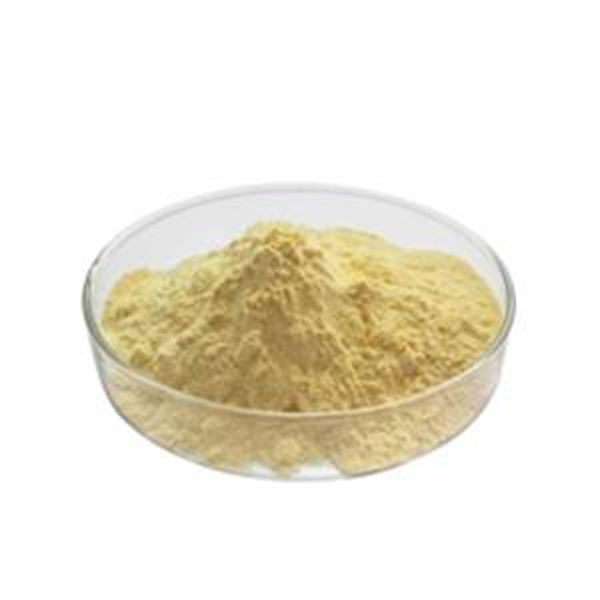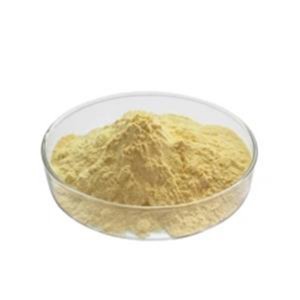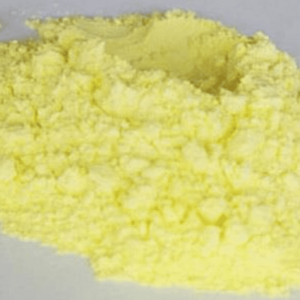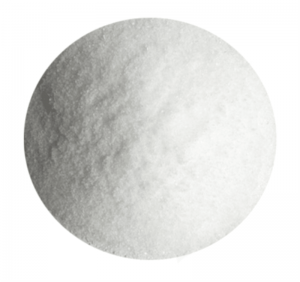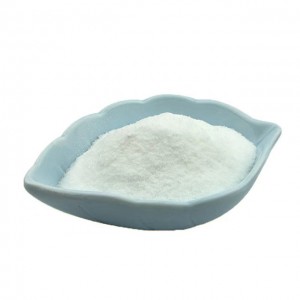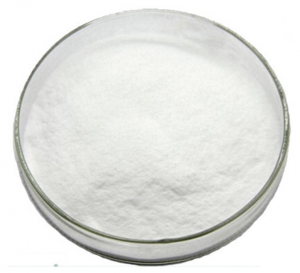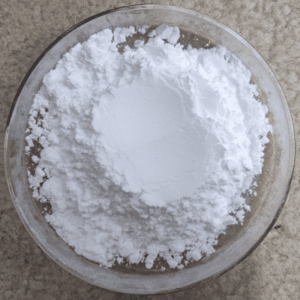| Basic Information | |
| Product name | Tetracycline hydrochloride |
| Grade | Pharma grade |
| Appearance | Yellow crystalline powder |
| Assay | 99% |
| Shelf life | 2 years |
| Packing | 25kg/drum |
| Condition | Sealed in dry,Store in freezer, under -20°C |
Description
Tetracycline is a broad-spectrum antibiotic that prevents bacterial growth by inhibiting protein synthesis. It binds to a single site in the 30S ribosomal subunit which prevents attachment of aminoacyl tRNA to the ribosomal acceptor site. It is used in cell biology as a selective agent in cell culture systems. Tetracycline is toxic to prokaryotic and eukaryotic cells and selects for cells harboring the bacterial tetR gene, which are resistant to the antibiotic.
Uses
Tetracycline hydrochloride is a salt prepared from tetracycline taking advantage of the basic dimethylamino group which protonates and readily forms the salt in hydrochloric acid solutions. The hydrochloride is the preferred formulation for pharmaceutical applications. Tetracycline hydrochloride has broad spectrum antibacterial and antiprotozoan activity and acts by binding to the 30S and 50S ribosomal sub-unit,s blocking protein synthesis.
Tetracycline hydrochloride is used to induce apoptosis in osteoclasts. It is used to treat acne and other skin infections, respiratory tract infections like pneumonia, genital, urinary infections, leptospirosis, helicobacter pylori, taxoplasmosis, mycoplasma, psittacosis for dog and cats. It also works more effectively in animals that have tick-borne infections. It is also useful in cell culture applications.
While tetracycline still is used as an antimicrobial, most small animal clinicians prefer doxycycline and large animal clinicians prefer oxytetracycline when a tetracycline is indicated to treat susceptible infections. The most common use of tetracycline HCl today is in combination with niacinamide for the treatment of certain immune- mediated skin conditions in dogs, such as pemphigus.
Veterinary Drugs and Treatments
While tetracycline still is used as an antimicrobial, most small animal clinicians prefer doxycycline and large animal clinicians prefer oxytetracycline when a tetracycline is indicated to treat susceptible infections. The most common use of tetracycline HCl today is in combination with niacinamide for the treatment of certain immune- mediated skin conditions in dogs, such as pemphigus.

